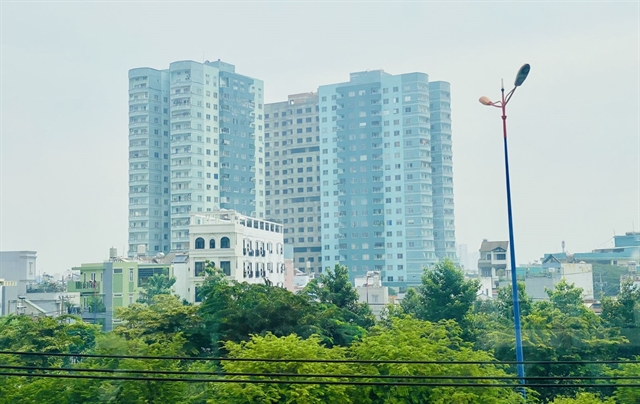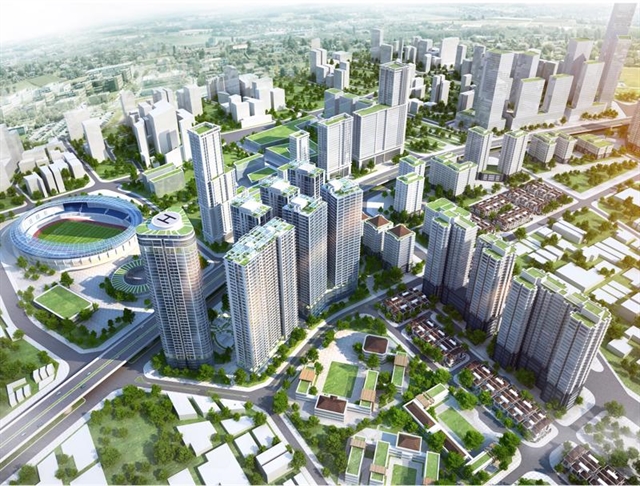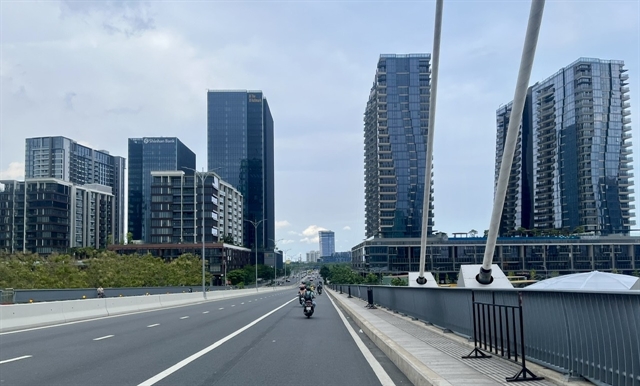 Economy
Economy

 |
| There are steel, interior design, pharmaceutical and chemical companies joining in the real estate industry. Photo vneconomy.vn |
HÀ NỘI — As the real estate market is expected to enter a new growth cycle, many companies, which do not have real estate as their core business, have moved to participate in the realty industry, with the ambition of benefitting from the industry’s billion-dollar pie.
At the 2025 annual general meeting of shareholders (AGM) of Hoa Sen Group last month, Chairman of the group’s Board of Directors Lê Phước Vũ, revealed the steel production group planned to re-enter the real estate industry with the Hoa Sen Yên Bái hotel project.
Going in the same direction, the FPT Đà Nẵng Urban Joint Stock Company under the FPT Corporation last month also held a groundbreaking ceremony for the FPT Plaza 4 project, with a total investment of VNĐ2.79 trillion. Previously, in the 2022-2023 period, the IT group completed and put into use two apartment buildings FPT Plaza 1 and 2 with nearly 1,300 apartments.
The pharmaceutical company Imexpharm also wants to enter the real estate market. In its 2025 AGM document, the company said it would add real estate business to its business lines this year.
Meanwhile, the Đức Giang Chemical Group Joint Stock Company plans to invest in the Đức Giang Residence project with 1,000 apartments and 60 low-rise townhouses in Hà Nội’s Long Biên District.
The Bách Giang Investment and Construction Development Joint Stock Company under the mineral exploitation firm Tây Giang Group in February broke ground for the Eastern Urban Area in Long Hưng Commune, Văn Giang District, Hưng Yên Province.
Also in Hưng Yên Province, the Yên Sơn Joint Stock Company, which specialises in interior design, officially entered the real estate sector by launching the Majestic City project with a scale of 768 plots of land and a high-rise block with 740 apartments and 280 social housing units.
A notable point in the wave of encroachment into real estate in recent times is that besides steel or construction companies that can take advantage of their own advantages to seize market opportunities, there are also names from completely different industries, such as pharmaceuticals, chemicals and interior design, joining the game.
Changes to the real estate sector is not new in the market, when companies are strong enough in their field, many of them tend to switch to real estate that often attracts due to huge profits.
According to Phan Xuân Cần, a real estate project transfer consultant, companies that are operating in other fields can participate in real estate investment. However, he noted that real estate was not for all investors. For new businesses, they should be extremely cautious.
Sharing the same view, Dr Nguyễn Quang Tuyến from the Hanoi Law University, said that in the current financial scenario, companies wanting to invest in real estate needed to do their research. They should assess demand to avoid widespread investment and fall into a surplus crisis and risks, ensuring safety.
While there is a lot of potential in the real estate industry, with great opportunities come great risks. The failures of many names that entered the real estate market in the past has proved this.
Hùng Vương company (HVG), which was known as the 'Hùng Vương catfish king’ and led Việt Nam in seafood exports, with revenue of tens of thousands of billions of đồng per year, had to put aside its real estate dream when the market encountered difficulties.
Another name that also had disillusionment when investing in real estate is the Mai Linh taxi company. The company mobilised VNĐ500 billion of idle funds from about 800 individuals, with an interest rate of 18-25 per cent per year, mainly short-term loans of 1-2 years. However, after only a few years, the burden of real estate besieged this transport company. — BIZHUB/VNS




